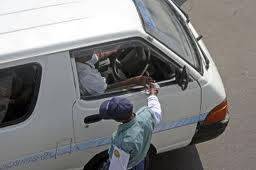Corruption in Bangladesh and its Consequences
According to all major ranking institutions, Bangladesh is now one of the most corrupt countries in the whole world.Transparency International's 2016 Corruption Perception Index ranks the country 145th place out of 176 countries and the public sectors that are conducted by the Government are to be considered as the most corrupted sectors of the country.
To prevent and investigate corruption in Bangladesh, Anti Corruption Commission was formed in 2004. But it's a matter of great regret that, it is considered to be largely ineffective because of having a strong control by the government over it.
After splitting from Pakistan in 1971, Bangladesh was ruled by a series of civilian and military governments. Riots surrounding the 2014 elections resulted in hundreds of deaths and changed the country's "political rights" rating from 3 to 4.
The country's score for rule of law on the Worldwide Governance Indicators declined from 28.6 in 2011 to 22.7 in 2013. It remains one of the world's poorest nations, with 76.5% in 2010 living on less than US$2 a day.
Bribery, rent-seeking and inappropriate use of government funds, excessive lobbying, long time delays in service performance, pilferage, irresponsible conduct from the government officials, bureaucratic intemperance have made public sector departments the most corrupt sectors of Bangladesh. Public sectors in Bangladesh include police departments, fire departments, water supply, electricity, gas supply, education, waste disposal, health, transportation, administration etc.
সামাজিক যোগাযোগমাধ্যমে উগ্রবাদ ছড়ানোর অভিযোগে তরুণ গ্রেপ্তার
A study from 2012 found that 97% of MPs were involved in illegal activities, with 77% abusing their positions on local election boards, 75% abusing development projects for their own benefit, including accepting commissions in exchange for approving projects or programs, 53% being involved in outright criminal acts, 69% influencing procurement decisions, and 62% influential local elections.
Fully 45% of Bangladeshis view political parties as corrupt, while 41% regard the parliament as corrupt. Only the police and the judiciary are viewed as more corrupt. Many politicians are regarded as out-and-out criminals, while the parties also "are believed to harbor criminals and terrorists," according to TI Bangladesh. The parties routinely exchange party funds for favor or pay them out because of extortion.
They also improperly use state funds to buy jobs, licenses, and contracts for party members and other purposes. Party finances are largely non-transparent; despite regulations requiring reporting to the election commission, reports are scanty or absent and non-compliance is rarely punished. Also, both the parliament and the political parties are under the influence of business, with 56% of MPs now being business people.
Anti Corruption Commission Bangladesh (ACC) was formed through an act promulgated on 23 February 2004 that came into force on 9 May 2004. The commission is often criticised for being ineffective and a wastage of resources due to the influence of the government over it.
All the people should work together in this country. Otherwise, it will not be mitigated anyway. Perhaps, it might be more dangerous for the people as well as the country.





Comments
Post a Comment